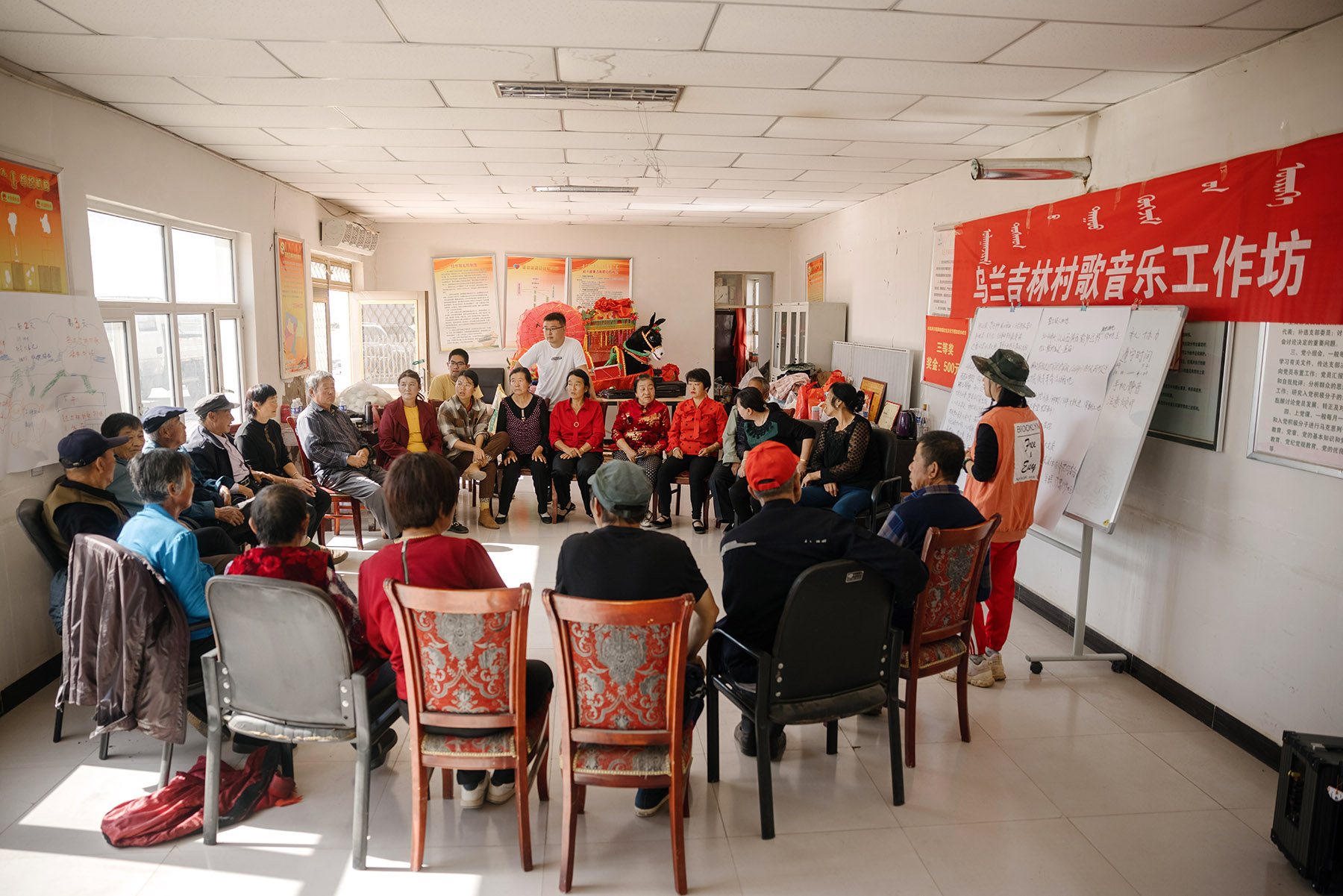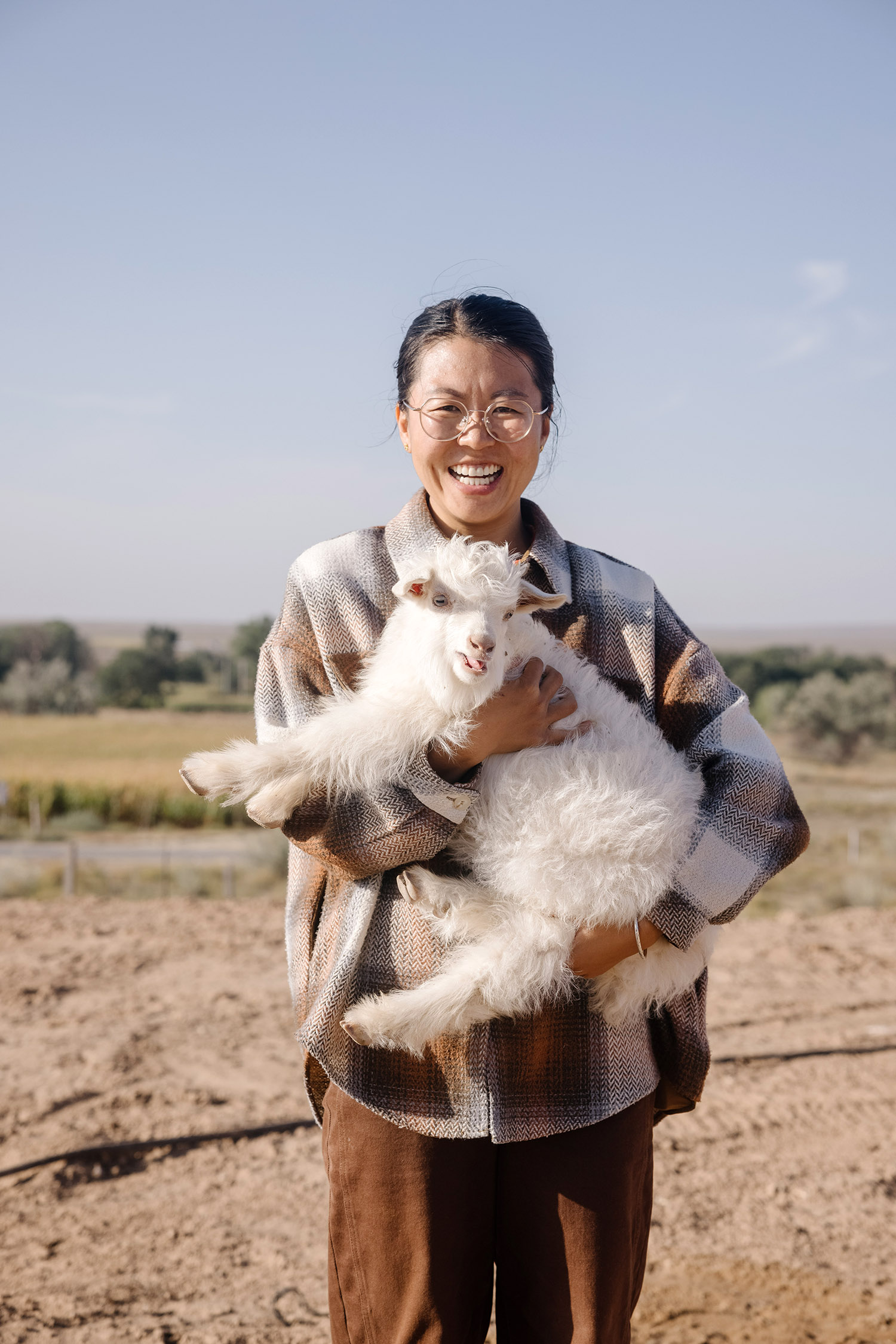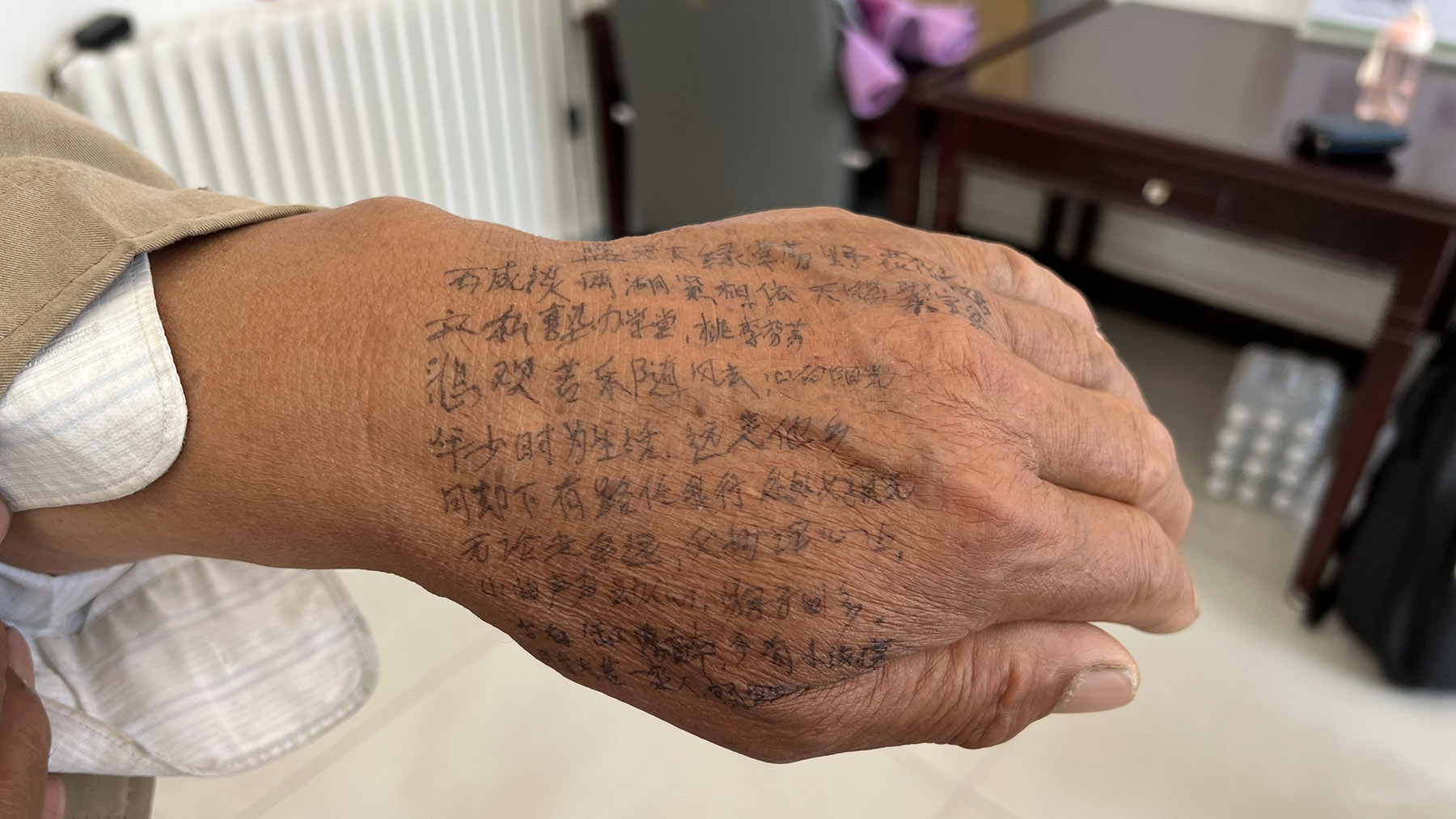Villagers in Inner Mongolia autonomous region compose their life stories, rural customs and spiritual needs through new songs

As the sun casts a golden hue across the plains of a township in the Inner Mongolia autonomous region weeks before Chinese New Year, the sound of villagers singing and dancing fills the air during a local cultural festival, as seen on a short video posted across social media platforms.
These are not songs passed down through generations but new anthems written by the villagers, capturing their life stories and rural customs.
The woman who posted the videos of this movement is Lyu Li, who is committed to ensuring that her fellow villagers in Mukainur township, Ordos, have a voice and can express their spiritual needs by creating village anthems.
Lyu, head of the cultural center in the township, grew up in a farming family with a deep love for singing. She dreamed of becoming a host since she was young.
READ MORE: Ethnic vloggers popularize highs and lows of rural life
Life took her down a path rooted in the soil of her hometown. Between 2021 and 2022, she led the residents of 14 villages in composing 14 unique anthems, weaving together a tapestry of the township's collective soul.
However, the journey to this moment has been far from easy.
"Whenever I think of village songs, I think of my mother," Lyu said.

Her mother, denied the chance to attend school, found her own stage among the hills, singing mountain songs with other girls as they tended sheep or at special occasions. Those melodies became a source of joy and expression, moments when her mother felt free.
These memories inspired Lyu, guiding her as she pursued her work. While attending a cultural event in 2018, she witnessed villagers singing and dancing with unbridled enthusiasm.
"I realized how deeply the villagers yearned for cultural activities," she recalled. "It was like seeing children longing for toys." Soon after, she joined the cultural station, determined to address this yearning.
But balancing her dreams with the realities of life proved a challenging task. In 2019, while pregnant, she frequently attended rehearsals with the local amateur art troupe, dancing alongside them despite her growing womb.
By July 2020, however, life became overwhelming. With a six-month-old child, a rented home, and a grueling 300-kilometer weekly commute between the city she lived in and the villages, she struggled to keep going. The pressures of her new role as a local Party official exacerbated her difficulties, culminating in a serious gastric illness.
"I felt completely helpless," Lyu said, facing the choice of staying in the rural area to continue her career or returning to the city for domestic life.
"I had professional knowledge but couldn't overcome my struggles, let alone help others." After leaving her child in her parents' care, Lyu sought treatment in Beijing only to find herself still mired in distress.

It was the villagers, with their songs and dances, who helped her heal. Singing alongside them, Lyu said she found solace and clarity. "I realized, this is my home. I am a child of farmers," she said, adding that helping the villagers fulfilled her.
With renewed purpose, she returned to the township determined to uplift her community. Even as cultural funding dwindled, she organized events, ensuring the elderly in particular had opportunities to participate.
The turning point came when Li Li, then mayor of Ordos, praised Lyu's initiatives. He emphasized that no matter rural or urban, residents need this type of cultural expression, Lyu said.
Tasked with creating a village anthem, Lyu embarked on a journey of discovery. Door to door, she listened to village songs sung by elderly people, many of which were involved in the red culture during revolutionary times.
She heard stories of hardship and resilience, learning about the township's history, family legacies and personal triumphs.
"The town is full of touching stories and historical landmarks in urgent need of preservation. Many of the elderly who knew these stories have passed away," Lyu said.

One of her most cherished memories is of an elderly man who, nervous about forgetting the lyrics during a choir performance, scribbled them on the back of his hand."It showed how much this meant to him," Lyu said.
The township's population reflects a semi-agricultural, semipastoral lifestyle. Aging and migration have left many elderly villagers in need of support and joy. Through village songs, Lyu found a way to address their needs.
In her spare time, she runs the WeChat account Laomingzi to share videos of the villagers performing, the local scenery and community stories. The response has been overwhelmingly positive, with elderly participants glowing at the sight of themselves on their phones, reading praise from netizens.
ALSO READ: Solar power project soaks up sunrays in Inner Mongolia
Her efforts have also bridged cultural divides. Villagers now sing songs from other regions, like Red Dates in Shaanxi province's Nihegou village, connecting with communities far beyond the grasslands through social media.
"I never expected our village song by a group of villagers in Inner Mongolia to resonate so deeply with others. It's truly moving," said Wu Jiangwei, Party secretary of the village.
Through village anthems, farmers and herders have found a way to share their stories with the world."More importantly, villagers have gained a deeper appreciation for cultural diversity. They have developed a new collective identity and are reshaping modern rural communities," she said.
Fang Biling contributed to this story.


